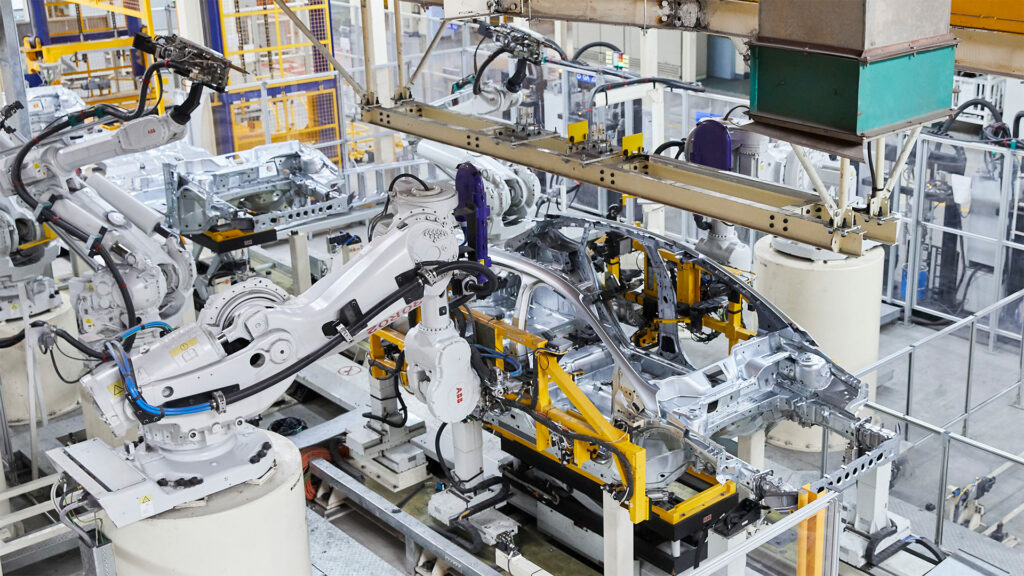After the European Parliament announced a regional ban on the sale of carbon-emitting petrol and diesel cars by 2035, it hasn’t taken long for research to emerge in which the majority of car makers claim that they simply are not ready. Supporters of the bill claim that it will shock Western makers into competing with the new wave of affordable EVs from China and the USA. Opponents say that the West is not ready for the move and that hundreds of thousands of jobs are at risk. Will the traditional brands manage to re-tool for the future or do we risk the ‘Havana Effect’, where many of the leading economic powers continue to drive old fashioned/polluting cars while the rest of the world moves toward a carbon-free economy?
The results of an ABB survey have just been released and they spotlight the challenges being faced by the major car makers. ABB has over 130 years’ experience in the supplying of automation/electrification tools and knowledge to industrial manufacturers. This survey brings together detailed responses from more than 600 industry experts from the manufacturers themselves, as well as supply chain partners and other professionals from across the automotive world.
So what do the results tell us?
- 80% view sustainable manufacturing favourably and say that the challenges are there – but can be overcome;
- 59% say that the EU target of eliminating fossil fuel motors from new vehicle production lines completely in the allotted timescale is not achievable;
- 18% believe that the targets can never be met;
- 11% believe that all targets are reasonable and will be achieved in time.
“The automotive industry is acutely aware of the stresses and strains involved in meeting the proposed regional timetables for reaching full EV production,” said Joerg Reger, Managing Director of ABB Robotics Automotive Business Line.
“Automation is key to making production more resilient, efficient and faster to meet these targets, which is why we’re seeing high demand for our robots that specialize in EV powertrain assembly. These solutions radically reduce build times, improve flexibility, further simplify the production process and ultimately drive down production costs.”
Almost 20% said that problems around the supply chain for battery technology was the main reason why they expect to fail to hit their targets, while 16% said that the overall investment necessary was simply not there.
Somewhat outside the direct control of the manufacturers themselves, the lack of charging infrastructure was quoted as the single biggest constraint to EV adoption by more than a quarter (26%) of those surveyed. At the same time, 17% highlighted high vehicle prices as the principal barrier to EV growth – although it was not clear if this was to do with actual manufacturing costs, high prices for battery technologies, or local taxes and tariffs that push the ‘price to the consumer’ higher.
There are also some interesting regional differences. Of those surveyed, only those in America (16%) felt that regulatory compliance was a key obstacle (compared to 7% in Europe and just 5% in Asia). However, almost a quarter (24%) of all respondents suggested that the high capital expenditure required was the primary challenge to achieving sustainable manufacturing. With robots becoming increasingly easier to access, integrate and use – particularly with developments in collaborative robots and software like ABB’s RobotStudio, which makes planning and programming faster and more efficient – automation will be the key enabler in the delivery of sustainable manufacturing.
Interestingly, only 26% of the industry experts surveyed felt that hydrogen would play a significant role in future personal transport. We think we can guess which respondents gave that answer.
You can download a copy of the report yourself using this link.
As far as the European Union’s position on the move away from polluting fuels goes, German MEP Jens Gieseke (centre-right) believes that there should be no pressure to change technologies. He believes that the market should decide. While EV advocates may not agree with Gieseke’s views, he does have genuine concerns for his country’s workforce.
“In Germany 600,000 people work on ICE production, those jobs are at risk,” he told media, and asked the commission to rethink its plans – especially for commercial vehicles like buses and trucks.
Overall, the law to move away from oil and associated polluting fuels was passed by a large majority – 340 votes to 279.
As WhichEV recently reported, over half the cars registered in the UK during February had an electric motor of some kind (for motive power – we're not talking about the starter or electric windows). Why would anyone want to stand in the way of such huge/positive retail pressure to electrify? The oil lobby is powerful, connected and well-funded, but surely the tipping point has been reached and it is now incumbent on the whole industry to push forward to a cleaner, carbon-free future.
